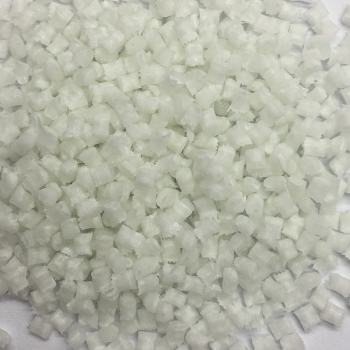What are the performance requirements of engineering plastics for insert housing
Along with the convenience brought to people' s lives, there are also some potential safety hazards. Compared with the price and appearance, the safety factor has become the primary consideration when modern people select the insert. How to improve the safety of the insert will also become a problem that the insert production company must deal with. The components of the insert include: switch, insert sleeve copper parts, power cord wire and shell plastic parts, Meanwhile, the shell is an important part to determine the safety of the insert. What are the performance requirements for the engineering plastics used for the insert shell?
1. Requirements for engineering plastics for shell by the safety detection technology target of row and insert
1.1 mechanical strength
The plug-in shell shall have sufficient mechanical strength to avoid damage affecting its continuous operation when impacted by external forces. The detailed test method is: low temperature impact test: the sample shall be placed at -15 ℃ for at least 16h, and the impact hammer with a weight of 1kg shall impact from 100mm high. No damage (crack) shall be allowed after the test.
1.2 resistance to abnormal heat, fire and electric leakage
The insulating material parts inserted in the row shall be able to withstand certain abnormal heat resistance, fire resistance and electric leakage and trace resistance.
All regular row and insert plastic parts shall be able to pass the 750 ℃ glow wire test, or even higher. The industry standard tends to be 850 ℃.
The test solution is prepared according to 100ml distilled water and 0.1g ammonium chloride. The insulating material parts are connected with the leakage marking test device at 175v, and then the test solution is dropped. No flashover or breakdown phenomenon is allowed before 50 drops of test solution are dropped.
1.3 heat resistance
The shell of the row plug shall have outstanding heat resistance. Detailed test methods include:

Store the sample in a heating box with a temperature of 1000C ± 20c for 1H. During the test, the sample shall not show any change that will affect its future use. The sealant shall not flow out to expose live parts. After the test, the mark is still clear and legible.
Ball pressure test: the test temperature is 125 ℃, and the test time is 1H. After the test, the indentation diameter shall be ≤ 2mm.
1.4 aging resistance
The mobile insert and conversion insert shall have excellent aging resistance. After being stored in the heating box at 70 ℃± 2 ℃ for 7d (168 hours), the plastic parts shall not be sticky or slippery (wrap your fingers with dry coarse cloth and press on the sample with 5N force. The sample shall not have cloth marks, and the material of the sample shall not stick to the cloth), cracks, significant deformation and other adverse damage after being stored in the room temperature and relative humidity between 45% and 55%.
In order to ensure the safety of the insert, the engineering plastics used as the insert shell must pass the above performance goals, among which the mechanical strength, flame retardancy, CTI and heat resistance are the key goals. We know that the improvement of flame retardancy often sacrifices the mechanical strength and CTI value of the material. Therefore, how to balance the above goals is also a difficult point in the development.
2. At present, engineering plastics are commonly used for plug-in housings
At present, most companies are using ABS and PC materials, but these materials have some deficiencies, such as: ABS is not heat-resistant, poor flame retardancy and easy to turn yellow; PC processing fluidity is poor, easy to produce internal stress and expensive.
Bull electrical plug-in is highly sought after by the majority of users in the market due to its high safety factor, light quality and high cost performance. Pptv01 completely exceeds the requirements of the safety detection technology target for row and insert. It is more heat-resistant, better flame retardant and lower density than ABS, and has lower density and higher cost performance than PC. In a word, pptv01 reserves a higher safety value for the product, ensures a higher cost performance, and improves the level of the plug-in products.
This article is from Jiangmen Engineering Plastics:http://www.wywantong.com/
-
04-13
PVC Engineering Plastics: how PVC plastic pipes are formed
The forming process of PVC plastic pipes should start from the raw materials of PVC plastic granules, which can be divided into soft PVC and hard PVC according to the added amount of stabilizer, plast
-
11-12
What is the filling property of Jiangmen engineering plastics
What is the filling property of Jiangmen engineering plasticsIn recent years, PC modified plastics have developed rapidly in China, and its industrial system is gradually established and improved. Th
-
10-08
Jiangmen Engineering Plastics: how to classify Jiangmen engineering plastics?
How to classify Jiangmen engineering plastics? 1. Classification by application characteristicsAccording to the different application characteristics of famous plastics, plastics are usually divided
-
08-30
Application scope of PBT engineering plastics
PBT engineering plastics are widely used in electronics, car industry, office machinery and other fields. In Japan and the developed countries in Europe, PBT engineering plastics are mainly used in t